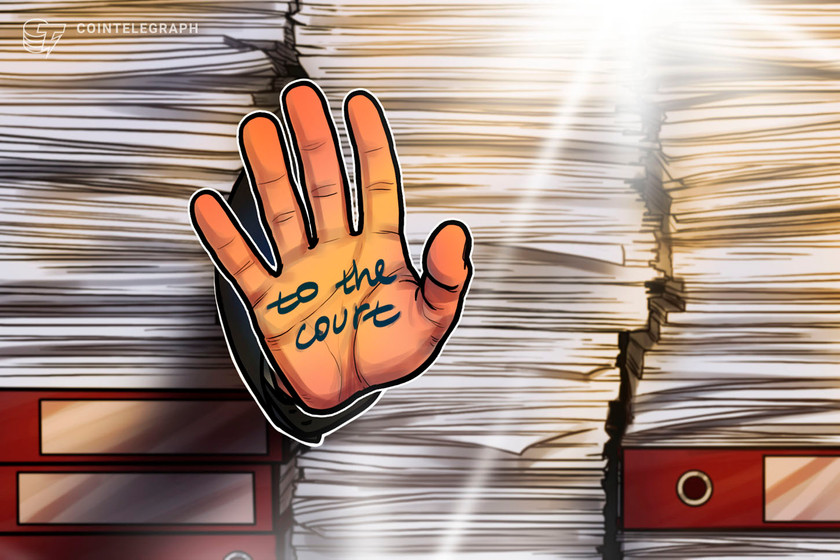On Dec. 12, the second-largest health insurance company in the United States announced plans to leverage blockchain technology to secure the medical data of all its 40 million members over the next three years.
The most unique quality of a blockchain is that once a piece of information is added to the distributed ledger, it cannot be altered. The information stored on a blockchain is absolutely secure and trustworthy in its entirety. In order for a change to be made in one block, changes must be made to all the subsequent blocks associated to the affected block.
Being synonymous with trust, blockchain has multiple applications in improving the current health care and insurance infrastructure.
Blockchain in health care
The health care industry possesses a multitude of opportunities for blockchain applications beyond medical records, such as verifying medical credentials for nurses and practitioners; providing visibility into medical trials; fighting counterfeits alongside the pharmaceutical supply chain; and facilitating aftermarket resale of drugs from wholesalers to new distributors.
Blockchain technology is not a silver bullet, but rather a powerful new tool to drive data integrity, interoperability and traceability. With increasing data storage centers and decreasing trust between patients, hospitals and supply chain partners, blockchain can make a real impact in the health care industry.
In the electronic health records industry, the field of blockchain competitors is vast and includes the likes of Medicalchain, MediBloc and Quras. Shigeki Kakutani, founder of Quras, believes that blockchain will play a critical role in the development of the industry:
“Not only can blockchain secure consumer medical data, but it can also be used to share medical data in a trusted way between various players vital to the healthcare industry, including healthcare providers, insurance companies, medical associations, government agencies, and patients themselves. Blockchain allows consumers to securely own their health data and make it available to necessary parties as needed. The technology, combined with wearable IoT devices and DNA data, can create a single, unified health profile of person.”
By combining blockchain with privacy technology, anonymized medical data can be shared across borders to enable medical research like never before. In this manner, medical practitioners and providers can work together globally and within regulatory compliance to find new treatments and procedures for life-threatening diseases such as cancer and AIDS. Furthermore, blockchain can be paired with artificial intelligence and wearable IoT devices to create a dynamic health profile that is continuously built upon every day.
Blockchain in insurance
Insuring giants have been using blockchain technology to prevent insurance fraud, digitally track medical records and more. Insurance is a traditional field that functions in an outdated style. While blockchain technology has been subject to extreme hype, its true potential is likely to be in some of the most antiquated fields.
The technology can be a transformative force for industries like insurance, which require the coordination and cooperation of many intermediaries with varying incentives.
Smart contracts enable blockchain users to transparently transfer anything of value without the interference of a middleman. Insurance policies could be written as coded, decentralized smart contracts in which an individual agrees to pay the insurance company in return for the company’s promise to help cover that person’s future medical costs.
Related: Crypto Insurance a Promising Sector Despite Caution of Major Players
Digital ledger systems like blockchain can help automate outdated processes, save billions of hours of paperwork each year, and reduce human error, as all forms and data are safely and immutably stored along the chain. Additionally, blockchain’s ability to safeguard sensitive information is especially enticing to an industry that heavily relies on data gleaned from being at the intersection of health, work and personal life.
However, the adoption of blockchain in these heavily regulated and slowly evolving sectors is by no means easy. Numerous regulatory hurdles need to be overcome before anything resembling industry-wide disruption forms. Additionally, cynics point out that there are serious obstacles for blockchain technology in an industry that hasn’t even fully embraced the cloud.
Anthem’s use of blockchain and its limitations
The key idea of Anthem’s blockchain implementation is not security, but data integrity. No one should be able to delete or change the information listed on the blockchain. This is an ideal feature for historical medical data, allowing medical practitioners access to the full data set about a patient as well as the ability to track all new data, which comes particularly in handy for when patients forget to relay part of their medical history.
Talking to Cointelegraph, Evgen Verzun, founder of cloud solution HyperSphere.ai, questions the limitation in this approach by asking how medical companies will deal with privacy and security and General Data Protection Regulation:
“Blockchain is not designed to keep the data secure, only constant and unchangeable. Even if we are talking about private and closed types of blockchain that try to implement restrictions on who is allowed to get access to the data and perform transactions, personal data is still not secure.”
The main reason for this is that information is not stored on a blockchain due to its large size. Blockchain synchronizes the data with all users — and the more data in the blockchain, the slower the speed of its processing and synchronization.
Ashwini Modi, the chief operations officer and co-founder of blockchain powered digital clinic dclinic.io shares the same concerns and provides some insights on possible solutions. Talking to Cointelegraph, he said that patient data remains scattered across departments and systems and is difficult to access in times of great need. He added:
“The existing healthcare ecosystem cannot be considered complete since multiple actors in the system do not have the systems in place for smooth data process management. More so, currently, healthcare systems are inadequate for handling the exchange of big data and requires major changes. Hybrid blockchain systems offer solutions to many of the problems currently encountered and companies are starting to develop Proof of Concepts that attack these problems.”
Blockchain adoption on the rise
The amount of money raised by blockchain firms in 2019 has significantly gone down since 2018. However, the adoption and interest of companies in the technology is at its peak. Brian Platz, the co-CEO of data management platform Fluree has an explanation for this. Talking to Cointelegraph, he said:
“2018 saw an influx in funding simply because Blockchain was a brave new world; the industry required resources and capital in order to support the essential education, adoption, and MVP phases to set the stage for implementation. Now in 2019 and 2020, we can expect less ‘up-start’ capital and more dedicated time to systems integrations and implementations.”
Most agree that the future of blockchain is bright. The technology has the ability to successfully improve patient care quality while saving governments and organizations substantial costs. All the challenges and hindrances that occur in multilevel authentication can be eliminated through blockchain.
With an ever-increasing adoption rate, blockchain has truly made its way to the health care sector and will make a significant impact. Even during this early adoption stage, blockchain technology is being positively accepted by consumers, organizations and governments in the health care ecosystem.
Insurance firms are beginning to trust blockchain
Insurance organizations have already started to experiment with blockchain and distributed ledger technology for a few years now. Although insurtech companies have been leading this movement, incumbent insurers and reinsurers are using the technology to improve outcomes for both customer and carrier.
For example, insurance giant Allianz is developing a blockchain-based ecosystem to facilitate cross-border insurance payments for its corporate customers. Even smaller countries like Sri Lanka are capitalizing on blockchain: United Kingdom-based charity organization Oxfam International launched its blockchain-based delivery system of microinsurance to paddy field farmers in the country.
Insurers can unlock trapped value by combining blockchain with other technologies, too. However, it is essential to note that blockchain’s value will come not just from the technology but also from the ability of insurance companies across complex ecosystems to align behind shared economic influences and healthy governance structures.









